
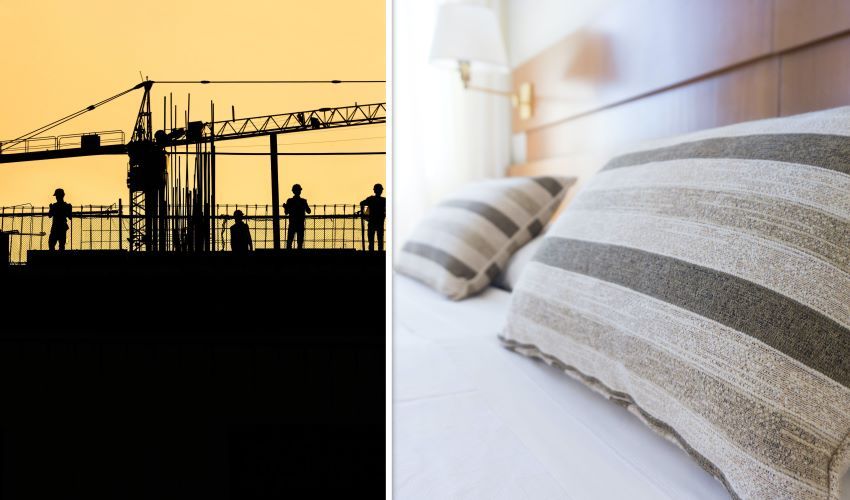

With what seems a record number of hotels slated for redevelopment, and travel operators questioning the declining number of beds available in the island… debate has opened as to whether Jersey should be focusing on reviving what it has or building anew.
At a Scrutiny hearing last week, Economic Development Minister Senator Lyndon Farnham said he was of the latter view – that more should be done to encourage “new modern hotel stock” rather than trying to revive hotels “in the back streets of St. Helier.”
There are currently around 10,500 beds available in the island - nearly 7,600 of which are split across 56 hotels, according to figures presented by Senator Farnham to the Economic Affairs Panel.
1,194 other beds are available across 349 registered self-catering apartments with the maximum occupancy for the campsite, 739, making up the total. Meanwhile, 180 local properties are currently advertised on AirBnB.
Since 2018, the island has lost just under 300 beds, continuing a trend that has been ongoing for several years.
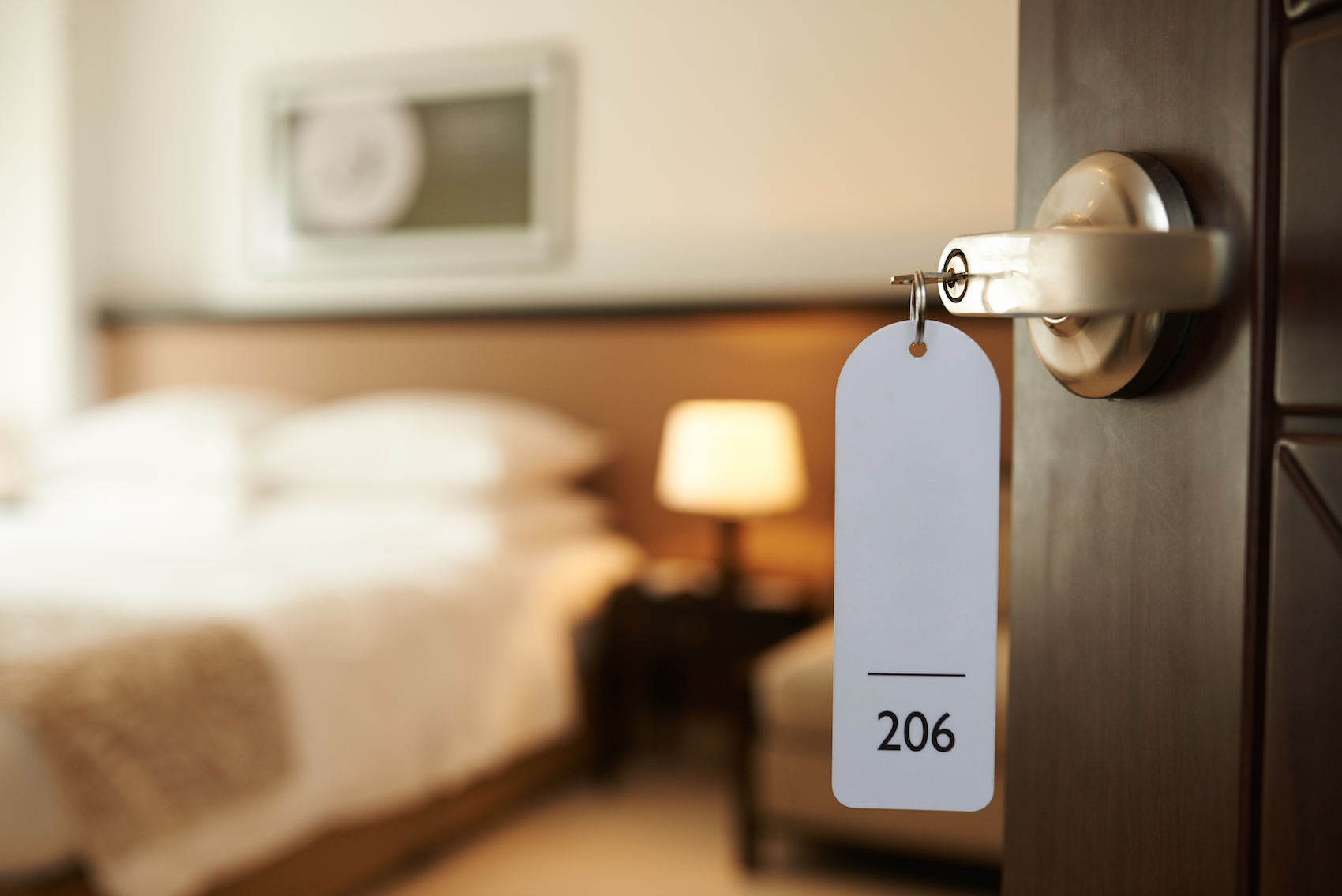
Pictured: Since 2018, the island has lost just under 300 beds.
Meanwhile, the Mayfair, Apollo, Savoy, Stafford, Revere and Miramar Hotel could all be demolished if plans are approved, while part of the Fort d’Auvergne hotel is already being knocked down after plans to build 25 flats were approved.
Combined together, the establishments represent a total of 593 beds.
With what seems like a record number of hotels slated for redevelopment, members of the Economic Affairs Panel last week grilled the Minister on what could be done to preserve the number of beds available in the local tourism industry.
Panel member Senator Steve Pallett asked whether an amendment to the short-term Island Plan, which is due for debate in March 2022, could be brought forward to protect hotel and tourism sites, citing the concerns of several islanders about the loss of hotel sites.
The Minister said there was a “general resistance” to going back to what was known as the 'prime site policy', which was in place from the 1970s until the early 2000s and prevented changes of use for hotel sites.
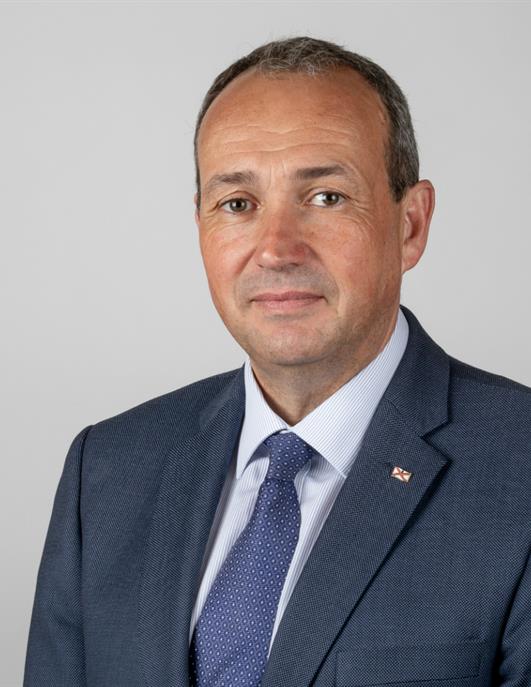
Pictured: Senator Farnham does not believe a prime site policy would be right for the tourism industry.
“In my opinion, that policy was detrimental to the tourism industry because it kept a lot of old tourism stock that had to stay in the industry, they weren’t allowed to redevelop, they had to be used as hotels,” Senator Farnham said.
Deputy Kirsten Morel, the Assistant Minister, added that protecting a site could potentially reduce an owner’s ability to access investment.
“One of the difficulties with so-called protectionist policy in the Island Plan is that it ultimately affects the value of that land,” he explained.
“One of the problems with designating sites as purely for tourism is that then, when the owner of that site wishes to refurbish, needs to access capital markets in order to gain the funding to refurbish, they are restricted because the lenders see the value of that site as lower than it would be if it was a free site, as in free of protections.”
The Minister went on to say that, since the policy had been abandoned, “a lot of the older stock” had left the market, while “a lot of newer investment” was made in the sector.
He said the prime site policy wasn’t right for the industry, even though there was “general support” for it and suggested it would be better to focus on new buildings rather than trying to preserve old ones.
“Instead of trying to keep hotels in Jersey that aren’t in prime sites - for example, the backstreets of St. Helier, where perhaps the modern tourist doesn’t want to visit - we should be doing much more to encourage new builds and finding new builds.”
Senator Farnham admitted that finding new sites to build on would be a challenge, given that the most valuable use for land currently is for housing.
However, he added that he was keen for Ports of Jersey and the States of Jersey Development Company to find space for commercial activity - especially the “development of new modern hotel stock” - within their masterplans.

Pictured: The Minister believe that the island should encourage the building of new hotels.
Rejecting the view advanced by Senator Pallett that the tourism industry was at “tipping point”, Senator Farnham later noted that two or three hotel projects were currently “on the cards” with more in the pipeline.
A spokesperson for Visit Jersey explained that Jersey’s accommodation landscape is changing, with several hotels identified for a change of use, but noted that: "Against this backdrop, we have seen investment in the tourism product which aligns to customer demand."
"New developments include the Premier Inn which will have 122 rooms and Milbrook House Hotel which will have 39 rooms," they added.
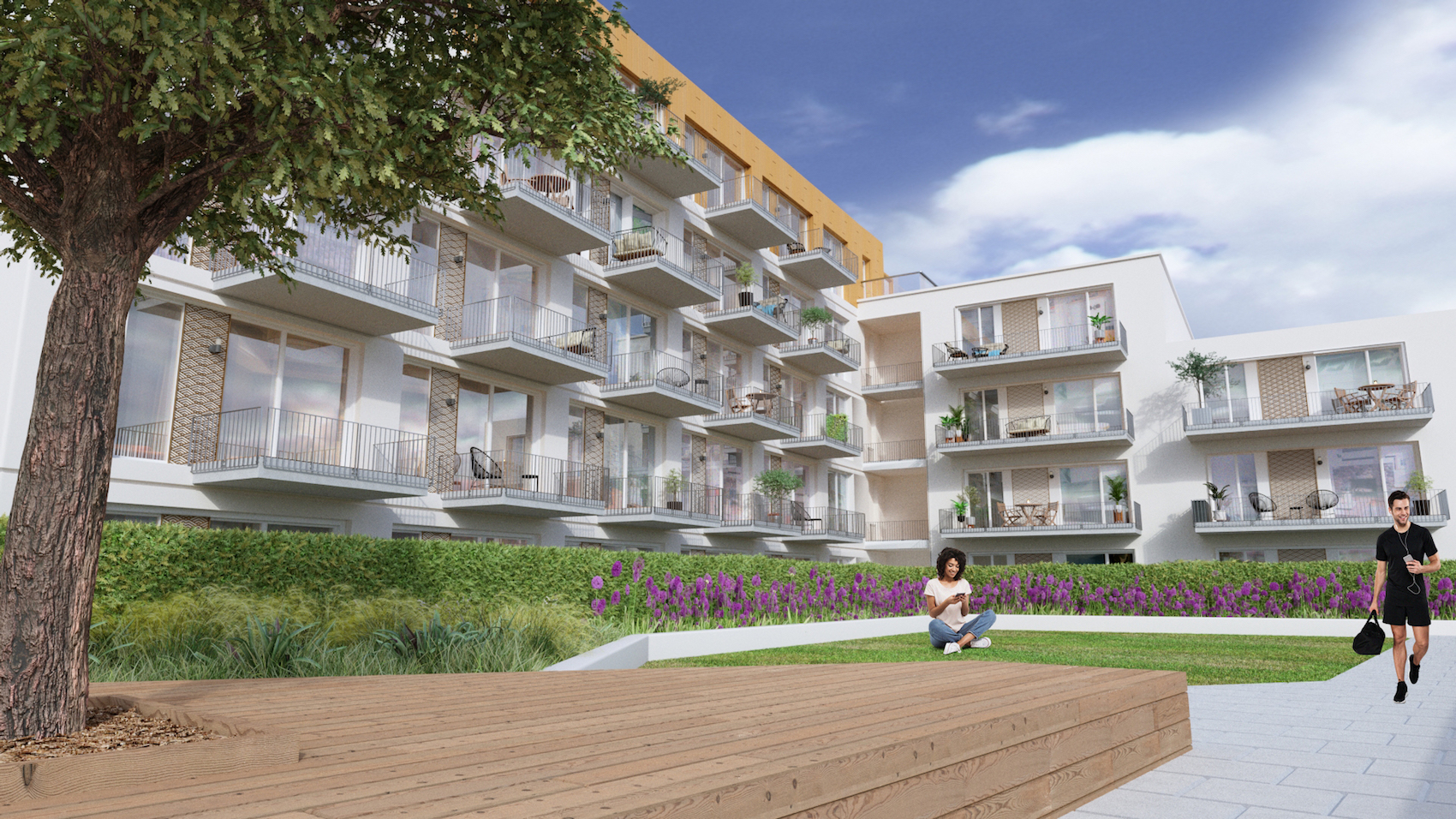
Pictured: Le Masurier's Bath Street development will include a 122-bed Premier Inn hotel.
"Other partners investing are The Moorings (a restaurant with rooms), Les Ormes and numerous applications and developments for unique self-catering, such as farm stays and unique heritage lets."
Senator Farnham said that one of the aims of his future Tourism Strategy, which is due for release at end of March 2022, is to improve the hospitality industry’s productivity. However, he noted that tourism is “not all about the numbers”.
He explained that, while the current number of beds represents a third of what was available in the “heyday”, the contribution per bed is now “significantly higher”. The Minister added that he would rather have 10,000 beds full throughout the year than “20,000 beds full up in the summer and 15,000 beds empty in the winter”.
Senator Farnham said that no work had been done to calculate what a minimum number of beds under which the industry should not fall.
“It depends on the yield from a room, what the yield delivers to the economy and how many bed nights are delivered from that particular room," he said, repeating again that he would prefer to see fewer rooms full all year than more rooms full only in the summer.
“We are really trying to make the industry more productive, and we have to push up the bed occupancy figure well into the shoulder months. We were becoming quite successful with winter breaks and events in the shoulder months obviously until the pandemic hit.”
Senator Farnham said that one of the key advantages of Jersey's tourism industry is that it facilitates “very, very strong” air and sea links for islanders - something the new strategy will be focusing on.
However, his optimism does not appear to be shared by everyone, as panel member Deputy Steve Luce indicated. He said that, during a presentation on Ports of Jersey’s Annual Report to States Members, CEO Matt Thomas relayed concerns from air and sea operators.
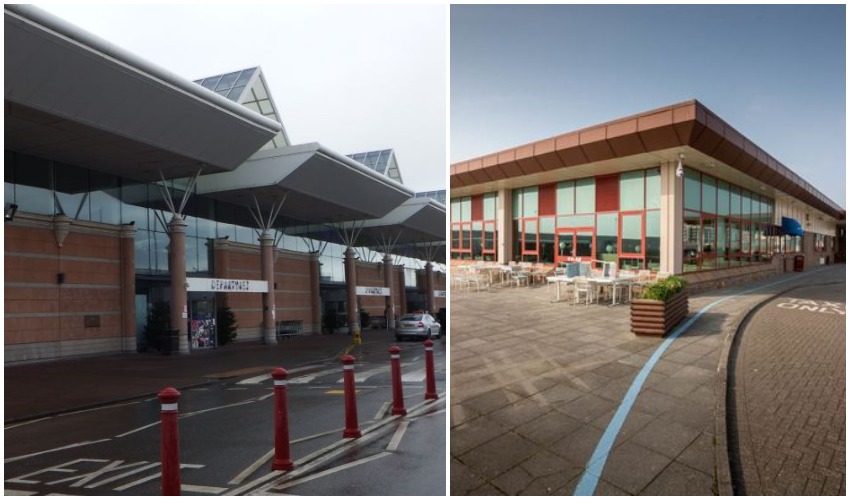
Pictured: Air and sea link companies have been asking questions about the decreasing number of beds.
“It is a subject of some concern to us and, as much as I accept that tourists spending more money could create more benefit for the economy with smaller numbers, at the same time, if you extrapolate that further, if we only had 10 tourists spending millions of pounds that would be ok. But of course the 10 tourists would not provide any seats, there wouldn’t be people filling seats on aircrafts or on boats," Deputy Luce explained.
“At the very recent presentation of the Ports' annual report, the CEO very clearly said to us that both our air links and sea links companies are both starting to ask questions about the number of beds in Jersey.
"Surely, we must work hard to find out what that minimum number is? Because the last thing we need to do is to lose air connectivity or boat connectivity because there isn’t the number of beds available to put on boats and planes to maintain those routes as viable.”
Contacted by Express, Mr Thomas explained that the operators' questions had come in the context of "strategic decisions".
“The pandemic has had an unprecedented impact on the travel sector," he said. "We are very pleased to have replaced almost all of the route connectivity lost following the demise of Flybe and the impacts of Covid, introducing new carriers such as Jet2, Loganair, BA Cityflyer and Eastern Airways.
"As we begin to see customer confidence to travel return, our discussions with airlines and Condor are now increasingly focused on 2022 and beyond. The financial impact of the pandemic on the carriers has been enormous and it will take a number of years to return to pre-pandemic passenger levels.
"The carriers are making strategic decisions on where they will fly in the future. In this context, the carriers have sought assurances that the availability of hotel beds on the island will not constrain their future growth.”

Pictured: Matt Thomas, the CEO for Ports of Jersey.
While the Minister assured that the declining number of hotel beds would be addressed in the Tourism Strategy, Mr Thomas explained that the number of available hotel beds is just "one of a number of factors" used by travel operators to forecast demand.
“Jersey’s travel economy is made up of various types of travellers, including islanders travelling off-island, friends and family visiting islanders, business travel and in-bound holiday makers," he said.
"Many travellers do not require hotel accommodation as part of their visit. While it is important that the island has hotel capacity in future, operators base their planning and schedule decisions on the entire opportunity presented by a destination rather than the single metric of hotel beds.”
Comments
Comments on this story express the views of the commentator only, not Bailiwick Publishing. We are unable to guarantee the accuracy of any of those comments.